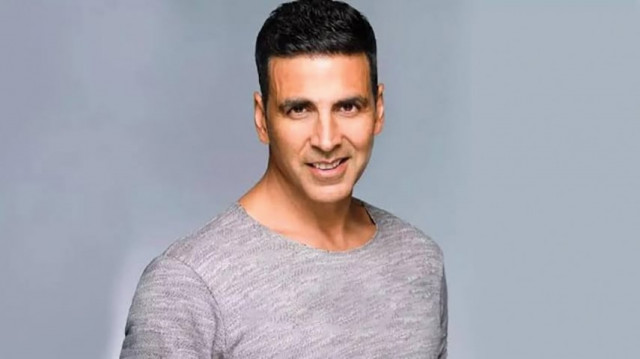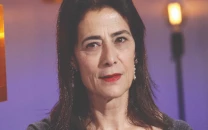Rise and fall of Bollywood's Khiladi
A look at Akshay Kumar's golden era amid flop streak

Bollywood's landscape is known for its rapid shifts in fortune, and Akshay Kumar's career trajectory exemplifies this volatility. From his reign as a box office titan with a string of blockbuster hits to his recent streak of disappointments, Akshay's journey has been nothing short of a rollercoaster. For years, he was the industry's most bankable star, a hit machine who could seemingly do no wrong. But as the saying goes, all good things must come to an end, and recent years have seen the Khiladi of Bollywood grappling with an unfamiliar foe: box office disappointment.
To truly appreciate the magnitude of Akshay's current struggles, we need to take a trip down memory lane, back to a time when his name on a movie poster was as good as a guarantee of entertainment and commercial success. The mid-2000s to early 2010s were Akshay's golden years, a period when he delivered hit after hit, showcasing a versatility that few of his contemporaries could match.
'Phir Hera Pheri' (2006)
In 2006, Akshay brought back his iconic role as Raju in Phir Hera Pheri, the much-anticipated sequel to the cult classic Hera Pheri. Known for its laugh-out-loud moments and clever dialogues, this film showcased Akshay's impeccable comic timing and his knack for bringing humour to complex situations. Sharing the screen with Suniel Shetty and Paresh Rawal, Akshay's performance resonated with audiences, making the film a massive hit. Dialogues like "21 din mein paisa double" became instant classics, further solidifying Akshay's place in the comedy genre.
'Heyy Babyy' (2007)
The success continued with Heyy Babyy in 2007, where Akshay took on the role of Aroush, a fun-loving bachelor whose life is turned upside down by the arrival of a baby at his doorstep. Directed by Sajid Khan, this comedy-drama allowed Akshay to showcase his softer, more emotional side alongside his well-known comedic prowess. With Vidya Balan, Fardeen Khan, and Riteish Deshmukh as co-stars, the film not only entertained but also marked the beginning of a successful collaboration between Akshay and Sajid, leading to a string of hits in subsequent years.
'Bhool Bhulaiyaa' (2007)
Also released in 2007, Bhool Bhulaiyaa offered Akshay a departure from his usual roles, diving into the realms of horror-comedy. Directed by Priyadarshan, the film featured Akshay as Dr Aditya Shrivastav, a psychiatrist investigating paranormal disturbances in an old haveli. This role allowed Akshay to demonstrate his range, balancing wit with a more cerebral performance. The film, with its unique blend of horror and comedy and the catchy tune Hare Ram Hare Ram, became a box office hit, proving Akshay's ability to handle complex characters and genres.
'Welcome' (2007)
In yet another hit from 2007, Welcome cast the star in the role of Rajiv, a straightforward man who falls in love with the sister of a notorious gangster. Directed by Anees Bazmee, the film was a multi-starrer extravaganza with powerhouse performances by Nana Patekar, Anil Kapoor, and Paresh Rawal. Akshay's deadpan delivery and impeccable comic timing stood out, making him a standout performer in an ensemble cast. The film's success and its memorable dialogues became a staple of popular culture, proving Akshay's ability to shine even in a crowded field.
'Singh is Kinng' (2008)
The following year, Akshay's star power was further cemented with Singh is Kinng. Directed by Anees Bazmee, the film found Akshay essaying Happy Singh, a well-meaning but bumbling villager from Punjab who inadvertently becomes the leader of an Australian gang. The film, which also starred Katrina Kaif, Om Puri, and Kirron Kher, was a colossal hit. Akshay's endearing portrayal of Happy Singh, coupled with his crackling chemistry with Katrina Kaif, made the film a massive draw at the box office. The title track became an anthem at parties, and the film's success demonstrated Akshay's ability to blend action and comedy in a way that appealed to a broad audience.
What went wrong
In recent years, Akshay's Midas touch seems to have deserted him. Films like Bachchhan Paandey, Samrat Prithviraj, Khel Khel Mein, and his latest, Sarfira have failed to recreate the magic that once seemed so effortless for the star. While some, like Good Newwz, have found commercial success, they haven't matched the critical acclaim or cultural impact of his earlier works.
In a revealing conversation with Forbes in July, Akshay shared his thoughts on these setbacks, stating, "Every film comes with immense effort and passion, so seeing one fail is always tough. But there's a silver lining. Failures teach you the real worth of success and fuel your drive to do better. I've learned to embrace this early in my career."
Recalling a similar slump from the past where he encountered sixteen consecutive flops, the Bollywood actor insisted that he doesn't lose hope easily. "Yes, it stings, but it doesn't alter the outcome of the film. What matters is how you bounce backby working harder, making improvements, and giving your all to your next project. That's how I stay focused and energised."
The reasons behind Akshay's downturn are multifaceted. The rise of streaming platforms has changed audience tastes, making them more discerning. The pandemic has altered moviegoing habits. And perhaps, the sheer volume of the actor's output - he still maintains his multiple-releases-per-year schedule - has led to a sense of overexposure.
As fans reminisce about Akshay's golden era, there's always hope that the Khiladi of Bollywood might have another ace up his sleeve. His past successes remain a testament to his incredible talent and appeal. And who knows? The next big comeback could be just around the corner. After all, if there's one thing Akshay has taught both fans and foes over the years, it's to never count him out.



















COMMENTS
Comments are moderated and generally will be posted if they are on-topic and not abusive.
For more information, please see our Comments FAQ